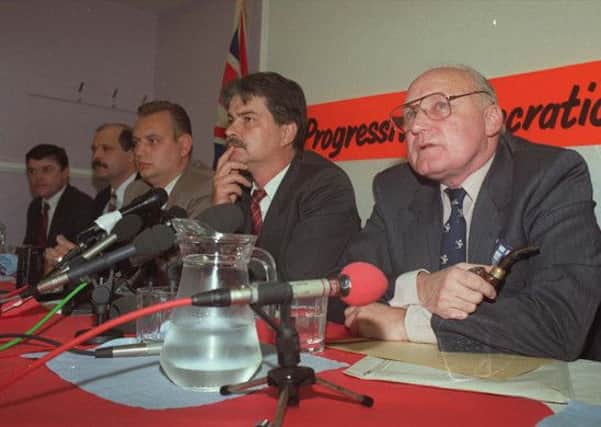Loyalist leaders ‘brave and impressive’


Mr Morrison, who was involved in the peace process in the 1990s, described loyalist leaders as ‘brave and impressive men’ who had taken ‘significant risks for peace.’
Writing on October 18, 2000, following a series of murders and expulsions in the Belfast area and in Coleraine, he argued: “The brutal violence in the community over the past few months is very dangerous.
Advertisement
Hide AdAdvertisement
Hide Ad“It has been accompanied by sectarian harassment that could spill over into intercommunity violence very easily. While some have been quick to identify what’s going on as merely a turf fight over drug and protection rackets, there is a deeper cause.
“Loyalist paramilitaries come from the deprived Protestant communities, which have long been the cannon fodder for Ian Paisley’s bigoted rhetoric, they have long been sustained in their militancy by assurance of Protestant and British hegemony in Northern Ireland.”
Mr Morrison wrote that this was being swept away by the ‘economic ascendancy of Catholics’ and the ‘political legitimacy of nationalism enshrined in the Good Friday Agreement.’
He claimed a combination of anger, perceived betrayal, and fear over being left behind lay at the core of these ‘self-destructive outbursts of violence.’
“The political leaders of the Loyalist communities are brave and impressive men who have taken their own significant risks for peace over the last six years,” he wrote.